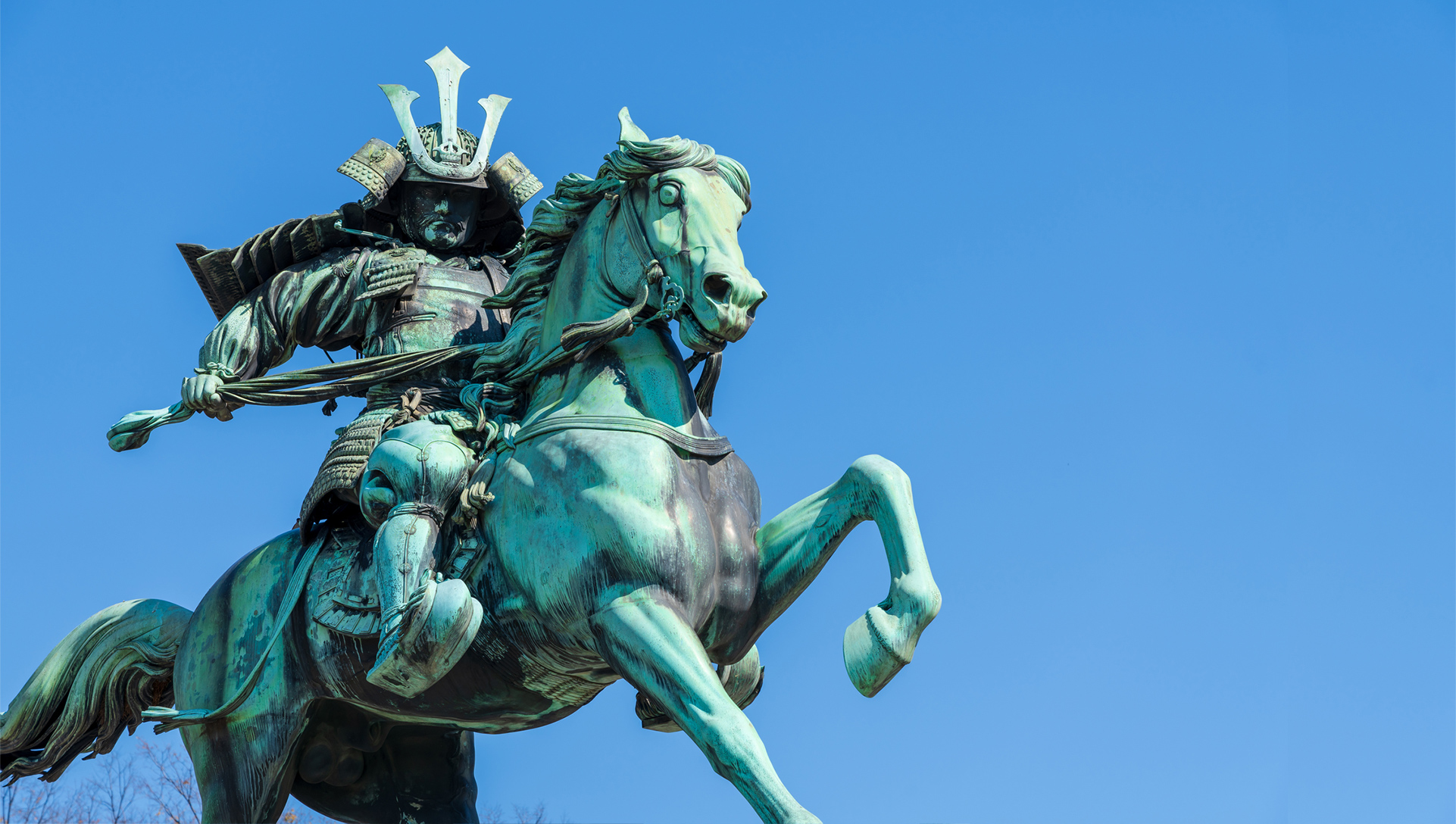Jisei, or Death Poem, is a poem composed to bid farewell to this world, and be read after the person has passed on. In this article, we will read death poems by great people who have left their mark on Japanese history, unravel their unfulfilled wishes and way of life, and learn their perspectives on life.
The words and deeds of a samurai, “Hijikata Toshizo,” which he vows to protect even after his death.

「Even if my body, becomes left in Ezo’s Shimane, and becomes rotten, my soul shall continue to protect you in the East」
Hijikata Toshizo supported Kondo Isamu, then head of the Shinsengumi, as his second-in-command, and built an ironclad group and martial organization. He continued to fight against the anti-Shogunate forces and fought in the Boshin War that began with the Battle of Toba-Fushimi, and eventually participated in the establishment of the Republic of Hokkaido. He also fought hard in the Hakodate War against the new government forces, but was killed by a bullet. In his death poem, he swore an oath of fortitude: “Even though my body may rot in Shimane (Hakodate) of Ezo (Hokkaido), my soul will protect the shogun in Edo (now Tokyo). Although of peasant origin, he was the last samurai to remain loyal to the Tokugawa Shogun
Saying Goodbye to Plum Blossoms that He has Gotten Accustomed To “Sugawara no Michizane”

「When the East Wind Blows, Bring the Smell to Me, the Blossoms of the Plum. Just Because You Don’t Have A Master, Doesn’t Mean You Can Forget About Spring」
Sugawara no Michizane was a doctor of letters, the highest rank in scholarship, and was highly respected by Emperor Uda, rising to the position of Minister of the Right during the reign of Emperor Daigo. This was seen as a threat by Fujiwara Tokihei, a member of the Fujiwara regent family and Minister of the Left. Michizane was falsely accused by Tokihei and was transferred to Dazaifu in Kyushu. When he left his own residence, he composed the following, “O plum blossoms, when the east wind blows in spring, send its fragrance to me. Never forget about spring.” He composed a poignant poem addressed to the plum blossoms. Two years later, Michizane died of illness in Dazaifu in a fit of disappointment and grief.
Thereafter, the Imperial Court experienced various illnesses and diseases, which were blamed on Michizane’s vengeful spirit. To quell them, Kitano Tenmangu Shrine was built. The grudge held by Michizane, which was entrusted to the Plum Flower, continued to haunt the Japanese people for many years.
“Ii Naosuke”, who said that ‘You Will Eventually Understand My Decision in Due Time’

「As like Sakura on the Verge of Blooming, With a Tuft of Fierce Heart, After It has Fallen, the World will Smell It」
He was a Grand Elder of the Shogunate and a leader who led Japan to open its borders to the outside world. He advocated the Great Prison of Ansei, which thoroughly suppressed those who opposed the opening of Japan to the outside world. This poem was composed the day before he was assassinated outside Sakuradamon by the Mito clan. In his death poem, Naosuke seemed to foresee his own death, saying, “Like a cherry tree in bloom, the great decisions I have made will smell fragrant after my death, then will you know their goodness.” Naosuke was well versed in tea ceremony and Zen Buddhism, and his famous phrase “Ichiki Ichikai” (“One life, one meeting”) conveys his deep insight.
This article is presented to you by ![]()
If you want to know
more about Samurai If you’re interested in Samurais and Japanese history, then you’re in for a real treat with these period dramas! SAMURAI VS NINJA’s subscription service offers unlimited access to shows featuring Zatoichi, Miyamoto Musashi, and other cool samurais!In the early Heian period when the samurai appeared, their main job was to protect important people such as the imperial family. Enjoy period dramas on SAMURAI VS NINJA that will surely satisfy samurai, ninja, and geisha lovers.


